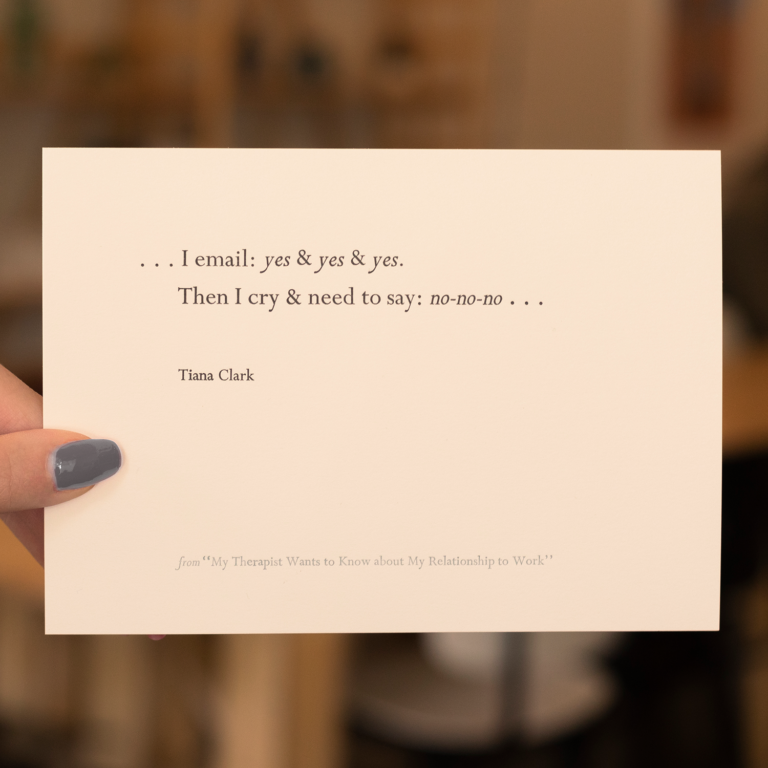
Image by Ben Raynal.
Paring Toward Tenderness: Approaching the Mystery
When I discovered Yahia Lababidi’s email in an old account that I rarely check, it was almost midnight. I was hitting the road the next day, driving from Tennessee to Washington D.C. for a job interview. Awake and restless, I decided to clean out my old messages — and found an unexpected gift:
“Hello Andréana, I’m drawn to your knowing and capacity for seeing and sharing Beauty…”
I knew Yahia’s name. I had just read and been moved by his essay about worlds visible and invisible. We exchanged a few messages, discovering some parallels and divergences in our approach to writing and the sacred. One of the differences is word count. I tend to write longer poems and essays; Yahia often explores human and mystical truths through one of the shortest forms there is: the aphorism.
I’ve never given aphorisms much thought. I too quickly dismiss them as a close relative of clichés and other bland truisms. But Short Flights, a new collection of aphorisms, seeks to revive this tradition — and sharpen the blade of poetry-in-a-phrase. This book made me reflect on my own use of language and how to pare the excess without violating the mystery.

For a small word that fits neatly into the mouth, the word “pare” has a nuanced etymology. It comes from the Latin parare meaning “to make ready, prepare, furnish, provide, arrange, order, contrive, design, intend, resolve, procure, acquire, obtain, get, produce, bring forth, give birth to.”
To bring forth. To give birth to. These are not quite the meanings that come to mind when we use the verb, to pare. Usually, we think of a knife, whittling away at a potato. Or, metaphorically, we might think of a life “pared down to the bone.”
Artists have always known the true meaning of pare. Perhaps it’s an apocryphal story, but there’s an old tale about Michelangelo paring down, shaping a block of marble to reveal the god or woman hidden within.

Sitting in London, in my tiny dormer room near the Thames, I remember reading Antoine de Saint-Exupery’s memoir of his pilot days, Wind, Sand and Stars. I came across the following words and quickly pulled out my journal, jotting them down:
“Il semble que la perfection soit attentre non quand il n’y a plus rien à ajouter, mais quand il n’y a plus rien à retrencher.”
“Perfection is finally attained, not when there is no longer anything to add, but when there is no longer anything to take away.” I thought to myself, If I can follow this advice, I’ll be a good writer.
Of course, nothing a writer or artist makes is perfect. This is why certain rug weavers consciously disturb the symmetry of their patterns — a little tip-of-the-hat to divine perfection, which can never be approximated or approached. But there is a humbling recognition of simplicity and refinement in Saint-Exupery’s words. It is the thing-in-itself we are always seeking. While we can never lift the final veil or chip away at nature’s sphinx-like smile to discover her secret, we can try to live and create with unadorned beauty.
A purity of spirit infuses work and lives hewn by this intention. This purity is no contrived “perfection.” It is not naivety or willful clinging to youth and unblemished form. It is not holding one’s breath to avoid inhaling unclean air. It is not refusing to eat, for fear of contamination.
A pure heart is honest, human, and wise. It is pared down to its essential abundance.

We need lots and lots of practice at this kind of living. We need prayers and grace too. We need friendships and encouragement (and a few hard knocks) along the lonesome road to paring down, bringing forth.
We also need the wisdom of others who are practiced at paring down language to its essential form — which is a good hint that they are practiced at other kinds of parings. And pairings, too — for writers of aphorisms have an uncanny ability to pair conflicting notions, revealing unlikely relationships and reconciliations.
The poet Charles Simic offers a few illuminating paradoxes:
“Silence is the only language God speaks.”
“The snow grows whiter after a crow has flown over it.”
“The infinite riches of an empty room.”
Yahia Lababidi uses aphorisms as a method of “intensifying consciousness.” Through these crystalline statements, we glimpse truths that feel both self-evident and brand new:
“The path to Peace is littered with dead selves.”
“All languages are rough translations of our native tongue: the Spirit.”
“You can’t bury pain and not expect it to grow roots.”
There is a refreshing bluntness and spaciousness in statements like this. They say, “Here is a thread. It’s connected to your heart. Tug at it. Unravel your comfortable world.” At the same time, there is no map. The statement is what it is. You can choose to follow its thread. Or not.
In these aphorisms, I also see an act of tenderness. A writer condenses countless hours of solitude and silence into a single phrase, turning her inner struggle and ecstasy into a precious grain of wisdom. The aphorist then offers this grain to the world — a delicate gift which might get drenched in the rain, or left out in the cold, or discarded by the local bomb squad. But they leave the gift anyway.
The best gifts always have this note attached or implied:
Hello, I see in you a fellow traveler. Let’s walk a piece of this road together.


